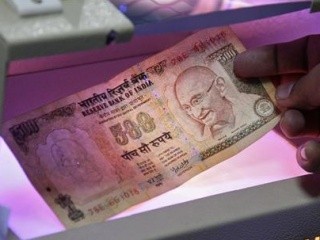
Standard & Poor's has cut India's outlook to negative from stable on Wednesday. The ratings agency downgraded the country's outlook on account of large fiscal deficit, not very impressive reforms, fall in stocks and rupee.
"The outlook revision reflects our view of at least a one-in-three likelihood of a downgrade if the external position continues to deteriorate, growth prospects diminish, or progress on fiscal reforms remains slow in a weakened political setting," said Standard & Poor's credit analyst Takahira Ogawa.
The ratings have been constraint by India's large fiscal deficits and debt.
"We expect India's real GDP per capita growth will likely remain moderately strong at 5.3% in the current fiscal year ending March 31, 2013, compared with about 6% on average over the prior five years, but down from 8% in the middle of the last decade," Mr. Ogawa said. "India's favorable demography and the increasing middle-class population will undergird its medium-term growth prospects, which in turn will support the sovereign ratings."
India has been rated badly by all the major rating agencies. S&P gave BBB long term rating on India while Moody's gave Baa3 and Fitch gave BBB. It also downgraded the rating outlooks of big Indian information technology companies Infosys, Tata Consultancy Services and Wipro from stable to negative.
However, India's Finance Minister Pranab Mukherjee said that there is no need to panic over the cut in the ratings as the government is likely to pass some reforms in the on-going budget session.
"There is no need for panic. The situation may be difficult, but we will be surely able to overcome (it)," he told reporters.
The Associated Chambers of Commerce and Industry of India (ASSOCHAM), one of the apex trade associations of India, said that the government should bring about reforms to get back to track. It added that the government should work on key legislations like Direct Tax Code (DTC) and Goods and Services Tax (GST) besides reforms.
"Fiscal consolidation is must to reverse economic indicators. This will include removing subsidies for fuel, fertilisers and social schemes," IBNS quoted ASSOCHAM secretary general D.S. Rawat as saying. "However, India remains an attractive investment destination as its growth story is based on strong and solid fundamentals," he added.
(With Inputs from IBNS)

















